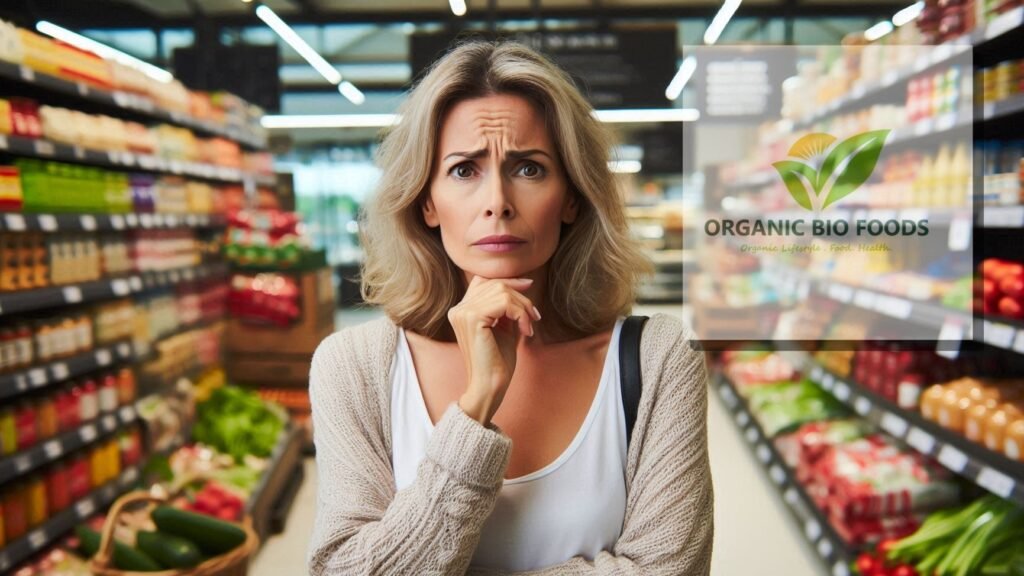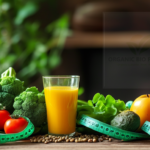Buying organic is excellent for your health and the environment if you are looking to make healthier food choices. But with all the options available, it is tough to decide which food must be bought organically. Here are seven foods you should most definitely buy organically and the reasons why they matter.
1. Strawberries
They are delicious, full of vitamins, and yet they top the list as regards to pesticide contamination. According to the Environmental Working Group (EWG), strawberries often contain residues from multiple types of pesticides, even after washing. Since they are usually consumed raw, all the pesticides go inside your body. You can indulge in this sweet treat by opting for organic strawberries and avoid ingesting harmful chemicals.
2. Spinach
This green is rich in iron, calcium, and vitamins A and C but happens to be one of the most pesticide-contaminated crops. In fact, conventional spinach had been found to contain more pesticide residue by weight than most other produced items. These chemicals are known to interfere with hormone function and have other adverse health effects. Organic spinach gets you all of the nutritional benefits without the unwanted side of toxins.
3. Apples
An apple a day might keep the doctor away, but only if it’s free from harmful pesticides. Apples obviously takes the largest chunk in the chart of most fruits sold yearly; however, they are also one of the most pesticide-laden fruits. The thin skin of apples allows pesticides to penetrate easily, making them hard to wash off completely. Organic apples have not been grown with synthetic pesticides and fertilizers, and thus it’s always a safer choice to eat for you and your family.
4, Tomatoes
Tomatoes are a staple in many diets, used in everything from salads to sauces. Unfortunately, conventional tomatoes often contain rather huge amounts of pesticide residue. Additionally, non-organic tomatoes may be picked before they are fully ripe and then artificially ripened with chemicals to acquire that reddish hue. Such affects not only the flavor but also, most fundamentally, the nutritional content of the tomato. Organic tomatoes grow without these chemicals and are allowed to come to their full ripeness on the vine, hence their improved taste and higher nutrient content.
5. Potatoes
Potatoes are among the highest vegetable consumptions in the world; however they are also among the most chemically treated. In the growing season, conventional potatoes become a host to many applied chemicals: fungicides, herbicides, and pesticides. After harvesting, potatoes may still be treated with other chemicals to prevent sprouting. These chemicals can easily make their way into meals since we often include their peels in what we eat. Opting for organic potatoes will reduce the number of these harmful substances you are exposed to.
6. Grapes
Another fruit that usually contains high levels of pesticide residues is grapes—especially the imported ones. Grapes have thin skins, so these pesticides really get in and are hard to wash out. Organic grapes do not use any synthetic chemicals in their cultivation, and by choosing organic, you avoid ingesting pesticide residues. This becomes particularly true when feeding grapes to children, whose systems are more susceptible to the effects of pesticides.
7. Bell Peppers
Colorful, juicy, and full of vitamins, particularly vitamin C, bell peppers are one of the most pesticide-contaminated vegetables. Their large surface areas and thin skin make it easy for pesticides to sit on top of and into the fruit. These can sit on the peppers long after washing. Choose organic bell peppers and get all the healthy goodness without the ingestion of harmful pesticides.
The bottom line here is that if you are concerned about your health and well-being, investing in buying organic foods is something worth making. You cannot always afford or buy everything organic. So, focusing on these seven food items can significantly reduce your intake of hazardous pesticides and chemicals. Organic farming also encourages sustainable agriculture that is better for the environment and the farmers who grow our food.
Such a small change can have big health implications by switching to the organic version of these commonly contaminated foods. The next time that you are in the grocery store or at your favorite farmer’s market, remember to grab organic strawberries, spinach, apples, tomatoes, potatoes, grapes, and bell peppers. Your body—and the planet—will thank you.








